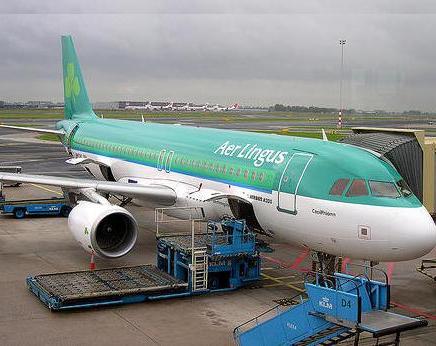
NEWSROOM
 |
NEWSROOM |
|
|
|
|
|||
|
By Mike Mitchell |
||||
 |
January 20, 2010 - On Tuesday The Irish Aviation Authority, (IAA) was
formally notified by the air traffic controllers union, IMPACT that a
work stoppage would begin today. The industrial action scheduled by
IMPACT will involve work stoppages between 14.00 and 18.00 in The Irish Aviation Authority this morning suspended a further two air traffic controllers. This brings to a total of 14 the number of controllers now suspended because they have stopped doing work on a number of ongoing projects, work they had already been doing for the last two years.
|
|||
|
More than 120 flights in and out of
|
||||
|
Irish Aviation Authority has stated the union wants a
6% pay increase agreed in the last partnership agreement - despite the
fact that the whole world has been turned on its head since that
agreement, the industry is in trouble, and volumes of work are
decreasing. And they do not want
to pay anything towards their pensions - even though all other public
service staff now pay the pension levy. The Controllers make no
contribution to their own pensions. The Authority, meanwhile, pays a
contribution of 30.5% of salary for every member of staff. “We want them to be reasonable and defer discussion of this 6% increase. We have told them we will be happy to review it in 2012. And we want them to make a contribution to their own excellent pensions, in line with everyone else in the public sector. We have not cut salaries. We are not cutting jobs." "These are very well paid staff," Kavanagh continues.
"Yes, they do highly important work - and accordingly we pay them very
well. A Controller will
typically earn a basic salary of over €112,000.
When you include PRSI and the pension contribution of 30.5% of
salary that the IAA pays, this gives a total package of almost €160,000.
When you contrast that with other public sector staff - teachers,
nurses, gardai, all of whom are paying a pension levy, these are very
well paid staff, with a gold-plated defined-benefits pension scheme.
“Increases paid to Controllers in the last ten years have also been
incredibly generous, according to Kavanagh.
Since 1998, people whose pay is linked to the
consumer price index would have gone up by 38%.
National Wage agreements have given people 55%.
Air traffic controllers, however, have gone up by 92% in that
same time. And they now
want an additional 6%. “Controllers work a 35 hour week," says Kavanagh.
"They are entitled to a break of 30 minutes for every two hours
worked. They work five days and
then get three days off. They
work 182 days a year, they have 137 rest days, and 36 days holidays, in
addition to 10 public holidays" The
airlines cannot afford to pay any increases in this climate. "The
aviation industry is on its knees at the moment," says Kavanagh.
"Airlines facing tough times - including Aer Lingus, Cityjet, Aer Arann
- cannot afford to take on additional costs.
Meeting the 6% pay would cost the Authority an additional € 6
million per year. This would have
to be passed on in its entirety to the airlines since we in the IAA
receive no funding from Government." See
Irish Aviation Authority Suspends Striking Air Traffic Controllers |
| ©AvStop Online Magazine Contact Us Return To News |
|